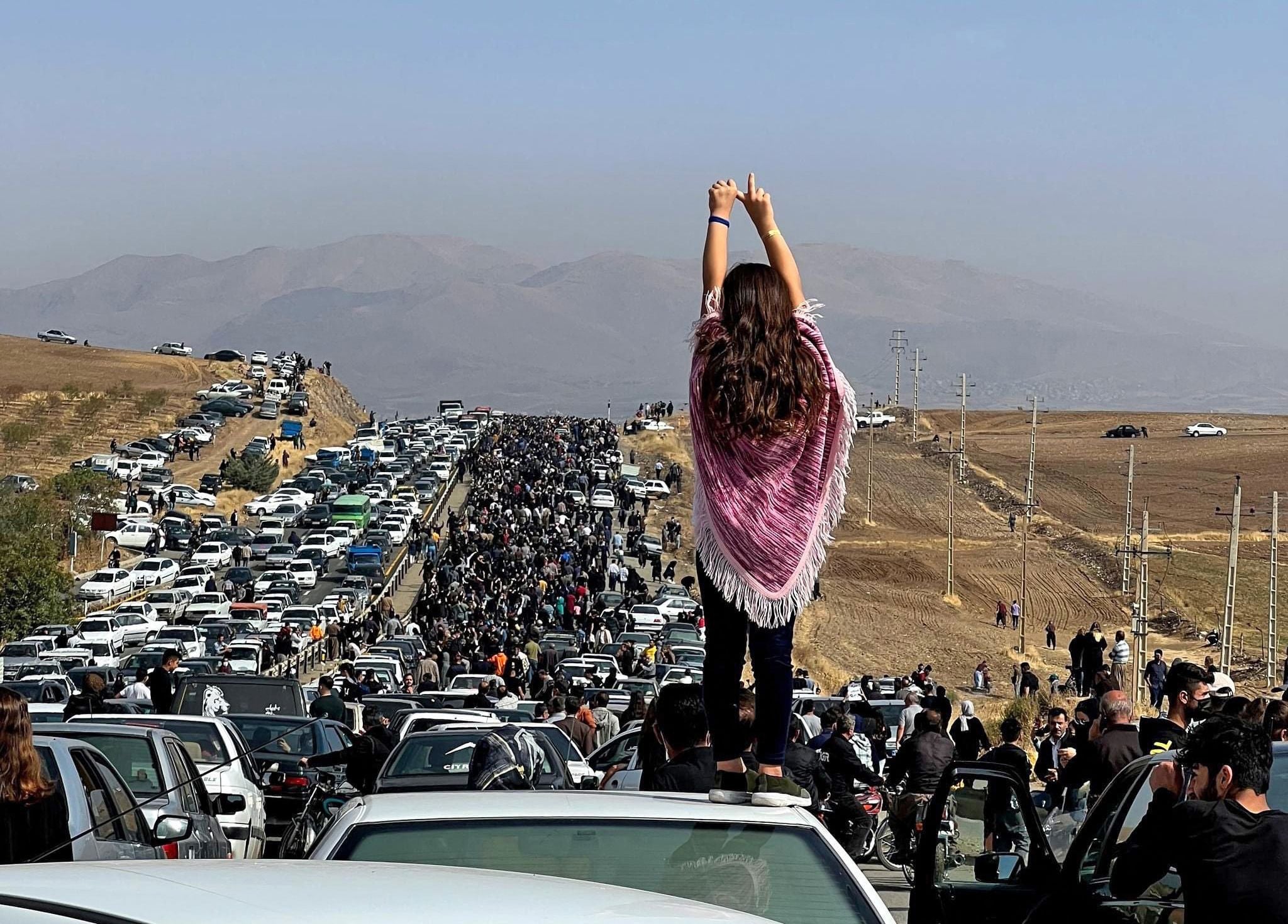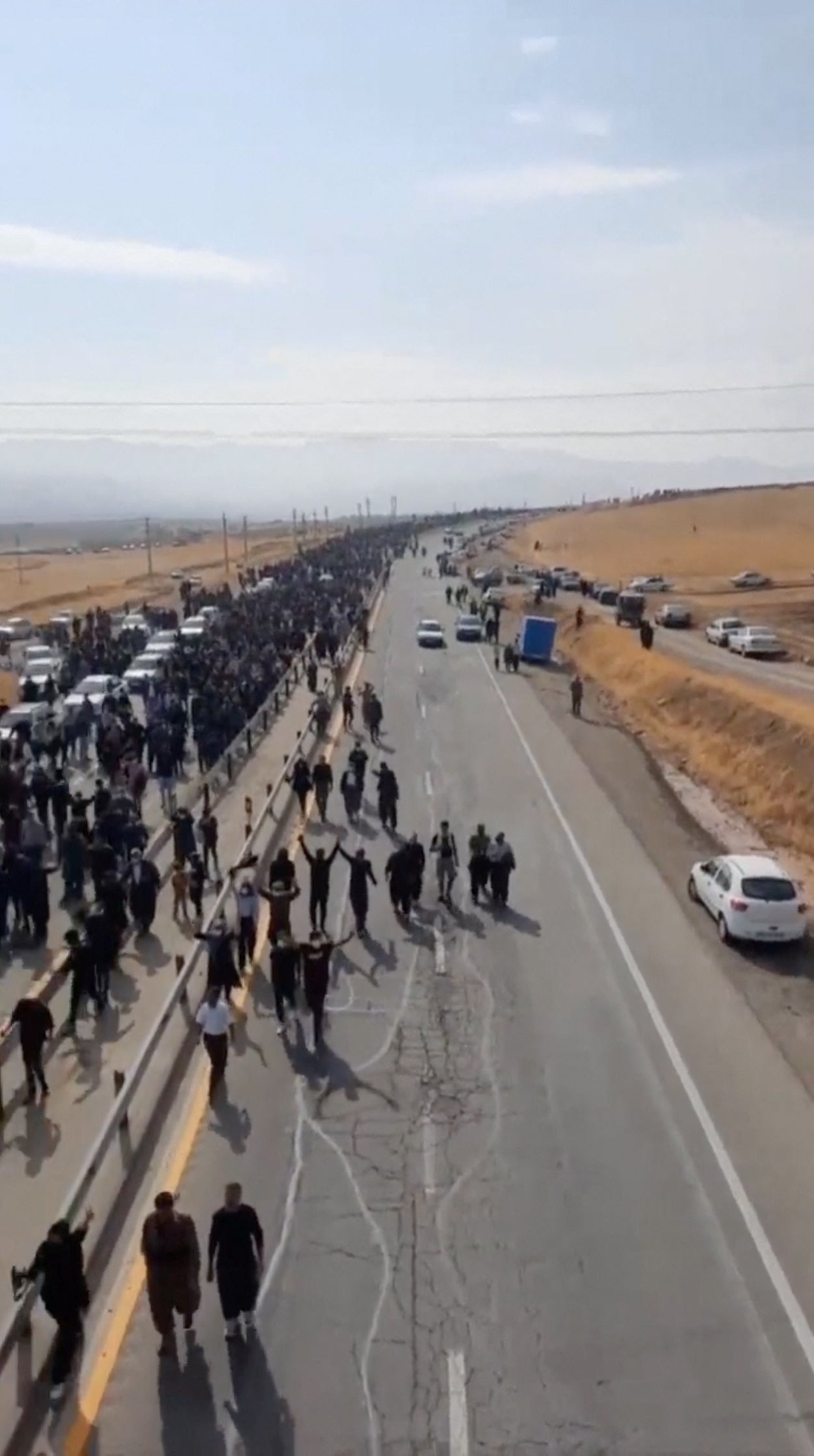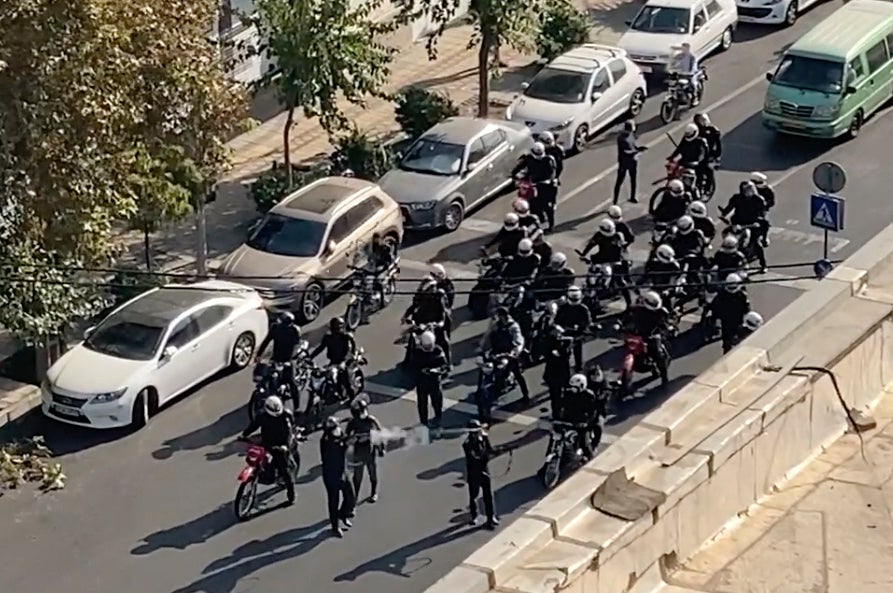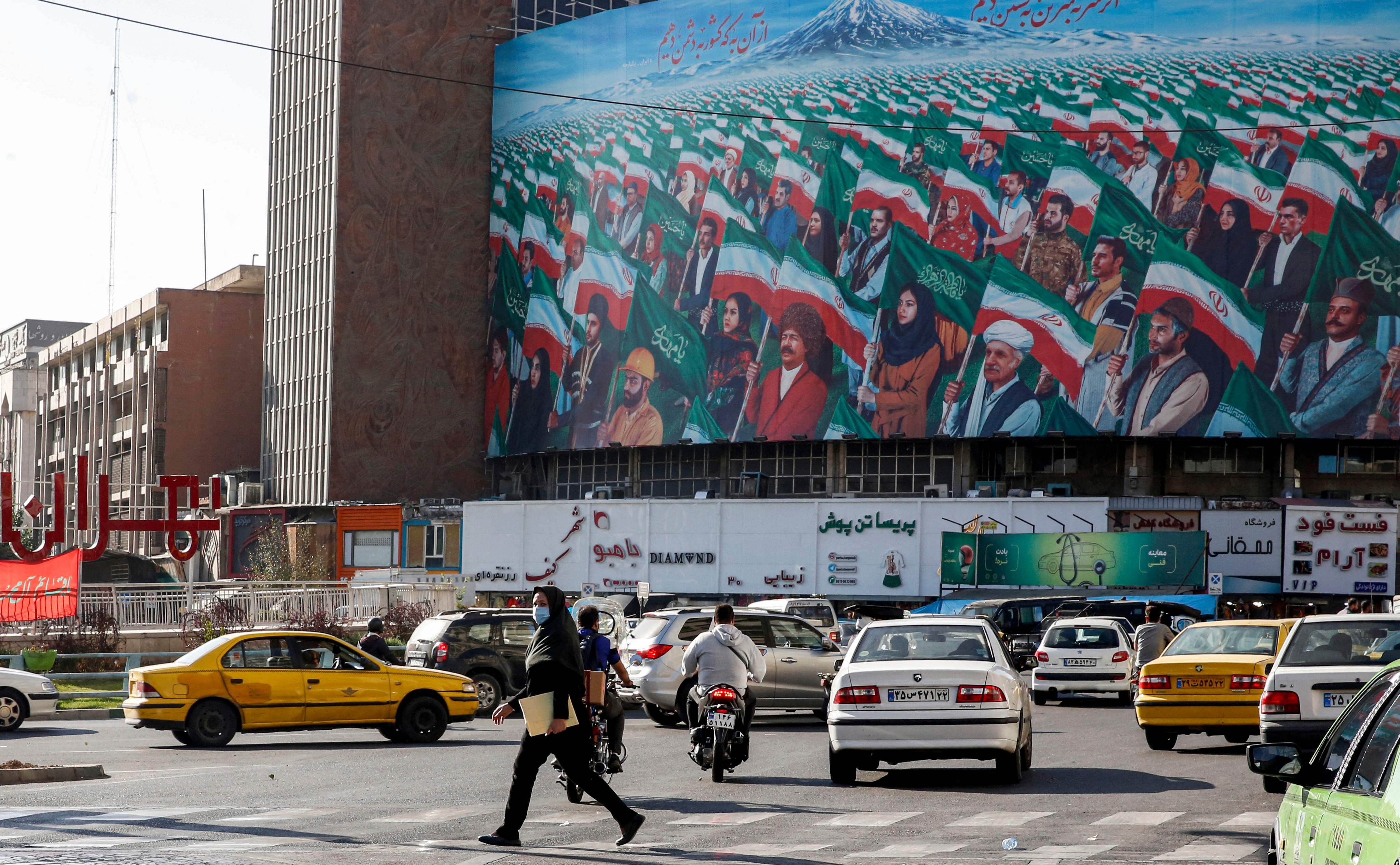
Tens of thousands of Iranians across the country defied phalanxes of security forces to march and protest against the clerical regime on Wednesday, the religiously potent and politically symbolic 40th day since the death of Mahsa Amini while in the custody of the morality police.
In the central Iranian city of Shiraz, at least 15 people were killed in unclear circumstances after gunmen attacked a shrine, according to state media. Two alleged “terrorists” were arrested and another was being pursued, according to other reports.
The weeks-long movement born of Amini’s death is rooted in opposition to Islamic social rules and led by mostly secular Iranians, and among observers and activists, there were doubts as to whether they would take to the 40th day mourning tradition rooted in faith.
But opponents to the regime embraced the day enthusiastically.
Mostly Iranian Kurds living in or near Amini’s western Iranian hometown of Saqez in western Iran could be seen walking for miles along highways and across fields to get to her burial spot after regime forces shut down or restricted vehicular traffic and menaced residents with gunfire since Tuesday night.
Video showed a massive crowd gathered in front of the governor’s office in Saqez.
“Don’t be afraid, don’t be afraid, we are all together,” they chanted.
Protests broke out on university campuses across the country, including in Tehran, the capital, Mashhad, Tabriz, Hamadan, and at high schools among teenagers walking home from classes.

“Basijis get lost! Basijis get lost!” women at al-Zahra University could be seen chanting, referring to the Basij paramilitaries terrorising Iranian protesters, as they confronted officials trying to bar their movement.
Doctors and dentists, marking Amini’s passing and as well as voicing anger over a detained fellow medical professional, poured into streets of Tehran, before they were chased away by regime enforcers firing teargas or shotgun rounds, according to video posted online. A shopping mall on central Tehran’s Vali Asr Square was flooded with young protesters, as was the traditional Grand Bazaar that was once the seat of commercial power.
“Freedom, freedom, freedom!” they chanted, according to a video posted online.
Even in the computer bazaar of Tehran, filled with Iranian yuppies who listen to western music and download the latest apps, tech workers in black beat their chests in a mourning ritual.
“We will kill, we will kill, he who killed our sister,” they chanted.

The country was also hit by labour actions. Workers at a refinery in Tehran went on strike, as did shopkeepers in commercial districts in many cities, including Tehran, Shiraz and Arak. Workers at the Tabriz stock exchange also staged a work stoppage, ostensibly to protest the state of capital markets.
In the Islamic and Eastern Orthodox Christian faiths, the 40th day after a death marks the deceased’s soul passing from the earth to the afterlife. It is often marked by friends and relatives returning to the gravesite to pay their respects.
In the run-up to the 1979 revolution that led to the establishment of Tehran’s clerical regime, 40th day commemorations of dead protesters were marked by political demonstrations met by gunfire and deaths, and further protests 40 days later, in cycles that built up momentum that led to the downfall of the country’s monarchy.
Analysts predict more unrest in the coming days as protesters also mark the 40th days of Nika Shakarami and Sarina Esmailzadeh, two juvenile protesters allegedly killed by regime enforcers.
“The 40th commemoration is tradition more than religion,” said Iranian activist Sharare Mahboudi, who left Iran three years ago after coming under the scrutiny of the security forces. “From now on, Iranians will look for any excuse to protest, even if that protest is religious. And if they beat their chests in mourning and wear black, maybe the security forces will go a little easier on them.”
State broadcast media mostly ignored Wednesday’s protests even as dramatic footage of mass unrest flooded the internet and opposition satellite television channels. The front page of the website of Iran’s English-language Press TV featured stories about protests over the cost of living in France and Spain, but not a word about the unrest at home.

The regime has responded to the protests with calibrated violence. At least 252 protesters, including 36 juveniles, have been killed in the violence, and at least 13,533 arrested, according to Hrana, a human rights monitoring group.
The regime blames outside agitators for provoking the unrest, and has vowed to take legal action against UK-based “hostile media" for supporting terrorism. In particular, it has blamed the popular Saudi-backed Iran International television network as well as BBC Persian, as well as Manoto TV, all based in London.
“The UK and the whole empire of lies based in London are sowing chaos and staging psychological warfare” to keep the protests going, said an editorial in the Javan newspaper, which is linked to the Revolutionary Guard.
As dusk settled, trash bins in central Tehran began burning, and streets of some quarters began turning into rock battles between security forces and citizens.

“This is a revolution,” said Ms Mahboudi, who is regularly in touch with protesters in Iran, including teens who defy their parents’ wishes and take to the streets daily. “Maybe it will take one or two years. Probably a lot of people will die. The regime will kill anybody. They are merciless. And they have nowhere else on the planet to go.”







